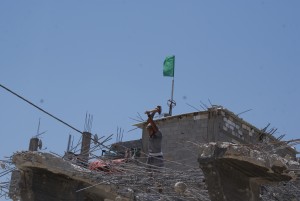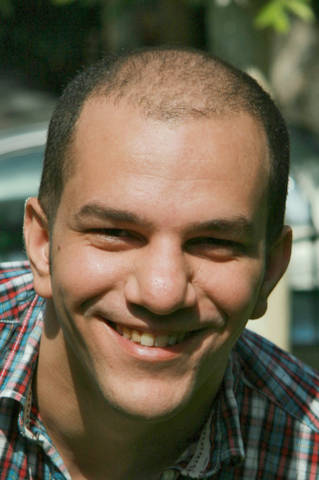The Muslim Brotherhood: empowered by its weakness
By Osama Diab
The revolution in Egypt succeeded because it had no Islamist face, and the Muslim Brotherhood has benefited from maintaining a soft presence.
3 March 2011
Many were terrified that if Egypt's imposed, relatively secular Mubarak regime collapsed, things might go the Islamist way. Based on this conception (or misconception), many had favoured President Hosni Mubarak's dictatorship to elections that might bring men with beards who would ban females from driving, throw stones at adulterers and arrest unveiled women.
The ousted president, in his last interview with ABC's Christiana Amanpour a few days before he stepped down, threatened that if he left office the Muslim Brotherhood would take power in Egypt — a rhetoric his regime long used to scare people of change.
However, Tahrir Square had a different story to tell. The demands were simple, basic and quite universal: a new constitution, democratic elections, the end of the state of emergency, and the fall of Mubarak and his corrupt regime. We didn't see a single protester demanding the application of sharia law or the restoration of the Islamic caliphate during the 18-day revolution.
The Muslim Brotherhood was actually a late participant rather than the driving force behind the revolution. The Brotherhood's weak presence actually gave hope and encouraged many who were hesitant to join the party in Tahrir Square. The number of protesters increased every day, of whom many were liberal, secular Egyptians.
We also witnessed the White House and the West gradually abandoning Mubarak after a long history of support for his regime, possibly encouraged by the fact that the revolution was not an ‘anti-everything-Western' uprising led by the mullahs, or perhaps embarrassed by not supporting a peaceful revolution with universal, legitimate demands. One of the reasons behind this revolution's success was its peaceful and diverse nature, representing people from a wide range of sectors of Egyptian society.
As a result of the revolution – in which the Brotherhood was just one group among many other political groups and parties – the Brotherhood decided to set up a civil political party named the Freedom and Justice Party, open to all Egyptians to join, including Coptic Christians and people of other faiths. The prospective party also took out any reference to religion or Islam from its name following the example of the ruling party in Turkey, the Justice and Development party.
The Brotherhood was previously portrayed as a mighty political organisation by the regime itself as a way to attract the support of those who opposed them inside and outside Egypt and to help maintain the status quo. I personally have often been asked, at the first sign of my criticising Mubarak, if I would prefer the Brotherhood, as if there were no third option.
The Egyptian revolution has reduced everyone including the Brotherhood to their actual size, since now everything is more transparent and the regime's many propaganda arms are no longer interested in repeating the collapsed regime's lies. No revolution would have happened had it been driven by radical Islamists, just as the Muslim Brotherhood would not have fared so well without this relatively secular revolution. This means that everyone, including the Brotherhood itself, has benefited from finally displaying the real size of this Islamist party, which is significantly smaller than what we were made to believe.
Mubarak gave the Brotherhood anabolic steroids, so to speak, so as to represent them as a threat to those who are not in favour of having another trouble-making theocracy in the region. He did that while cracking down on all other secular opposition that might have represented a favourable alternative to his regime in the West and for the many Egyptians not supportive of the Brotherhood.
In post-Mubarak Egypt, as the country's political structure takes shape, the Brotherhood will emerge as one political party among many. And when all the politically inactive Egyptian liberals take to the ballots, once again the Brotherhood will further be reduced to its actual size. The Brotherhood has said it will work to promote democracy in Egypt but does not intend to field a candidate for president.
While the world is closely watching Egypt, the Muslim Brotherhood has a great opportunity to abandon some of its former discriminatory ideas against women and religious minorities and reach a political maturity that could allow it to share power and be part of decision- and policy-making in a future democratic Egypt. The revolution worked hard and the protesters risked their lives to fight all forms of inequality and oppression from which Egyptians have long suffered. The Islamic movement should stay true to this spirit of the revolution, which allowed it to become an officially recognised political party rather than a banned group chased by Mubarak's security apparatus.
This article first appeared on Worldpress.org. Republished here with the author's consent. ©Osama Diab. All rights reserved.


